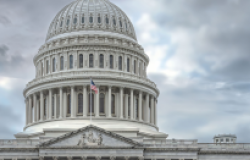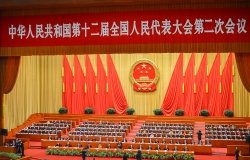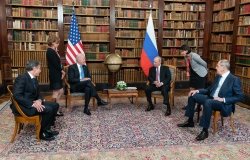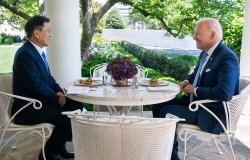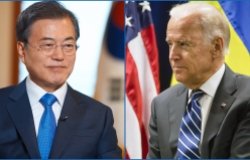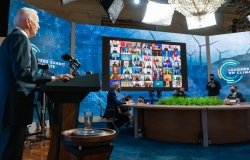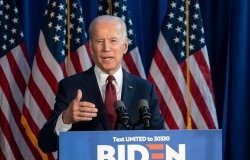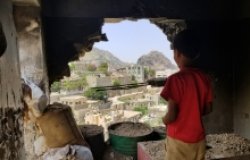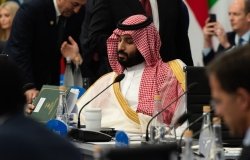Winning and Losing in Turkey: A Conversation about the November 1 Elections
For the second time in six months, the Turkish electorate has been asked to go the polls. The previous June effort produced a hung parliament and the inability of the parties to form a coalition government enabled President Erdogan to push for the second vote hoping that his Justice and Development Party would get a commanding majority. Experts dissected the results to see who won and who lost and what the longer-term implications are for Turkish domestic politics, regional crises, and relations with the United States.
Overview
Five experts discussed the impact and implications of Turkey’s November 1 election on domestic affairs, the government’s relationship with the Kurds, and future regional and international dynamics.
On November 4, 2015, the Middle East Program and the Global Europe Program at the Woodrow Wilson Center hosted the event “Winning and Losing in Turkey: A Conversation about the November 1 Elections.” The panel included Soner Cagaptay, Beyer Family Fellow and Director, Turkish Program at the Washington Institute for Near East Policy; Steven Cook, Hasib J. Sabbagh Senior Fellow for Middle Eastern Studies at the Council on Foreign Relations; Kilic Bugra Kanat, Research Director of the SETA Foundation and Assistant Professor of Political Science at Penn State University; and Amberin Zaman, columnist for Diken Turkey and Al Monitor. Henri J. Barkey, Director of the Middle East Program at the Wilson Center, moderated the conversation.
Barkey began the discussion with a brief summary of the November 1 election results and then opened the floor to the panelists. Cagaptay attributed the resounding win of President Recep Tayyip Erdoğan’s Justice and Development Party (AKP) to the deteriorating economic and political conditions in the months leading up to the election, the renewed conflict with the Kurdish Workers’ Party (PKK), and the October 10 Ankara bombings purportedly carried out by ISIS. Cagaptay said these factors together were a “shock” for Turkish voters and drove many to vote for the AKP and their guarantees of stability.
In examining the AKP’s victory, Kanat focused on the specific electoral strategies of the AKP and its work immediately after the party’s June election loss. According to Kanat, the AKP analyzed their shortcomings and adapted their strategies accordingly. He noted the opposition parties inadvertently created more favorable conditions for the AKP’s November victory; the Nationalist Movement Party (MHP) refused to join a coalition with the AKP, and the Peoples’ Democratic Party (HDP) could not cooperate with the MHP. Kanat also believes the HDP’s failure to distance itself from the violence associated with the PKK also contributed to its drop in support from the June elections.
Cook emphasized how these elections were the result of a political system clearly manipulated by Erdoğan to his advantage and underscored Turkey’s current fragility. He also asserted that the actions of the AKP, Erdoğan’s majoritarian style of rule, and his exploitation of competing Kurdish and Turkish nationalisms could threaten authoritarian instability in the future. Zaman added the crackdown on Turkish media to Cook’s list and disagreed with Kanat’s position that this was part of a structural issue. Cagaptay noted that in spite of these worrying trends, Erdoğan is still beholden to a long tradition of democratic institutions that will ultimately act to check these authoritarian leanings.
Zaman identified the Kurdish question as the most pressing issue for Turkey going forward. She believes Turkey’s continued aggression against Syria’s Democratic Union Party (PYD), because of its connection to the PKK, will likely inflame tensions within Turkey. Zaman extended this issue to Turkey’s foreign affairs, pointing to U.S. support of the Kurdish People’s Protection Units (YPG), the military branch of the PYD, as a potential flashpoint in U.S.-Turkish relations. Cagaptay contended that at the end of the day, Turkish airbases were more important to the United States than YPG assistance. Cook likewise affirmed that U.S. policy was unlikely to change toward Turkey over the Kurds, because wider strategic aims will take priority.
Cagaptay also discussed Erdoğan’s strong bargaining position with Europe due to the ongoing refugee crisis. Cagaptay said Erdoğan would be able to leverage Turkey’s ability to act as a buffer between the Middle East and Europe, possibly in return for free visa travel throughout Europe for Turkish citizens. Softening the impact of the refugee crisis has strong appeal for German Chancellor Angela Merkel and the rest of Europe, he noted, and this could reopen EU admission talks for Turkey moving forward.
Finally, panelists discussed the significance of the AKP and the challenges it faces ahead in relation to these issues. Kanat raised the point that the AKP remains the only party that can cross all levels of society for support. Cagaptay and Barkey also noted how the AKP has left a significant mark on Turkish society, and may arguably be more powerful than former President Atatürk in his day. Zaman added that while this was a victory for the AKP, the evolving dynamic between Erdoğan and Turkish Prime Minister Ahmet Davutoğlu will be something to watch closely in the future.
By Connor Seidenschwarz, Middle East Program
Speakers
Soner Cagaptay
Steven A. Cook
Kilic Bugra Kanat
Amberin Zaman
Columnist for the independent Turkish online news portal Diken as well as for Al Monitor, a Washington DC based online news outlet covering the Middle East; Turkey Correspondent, The Economist (1999-2015)

Henri J. Barkey
Hosted By

Middle East Program
The Wilson Center’s Middle East Program serves as a crucial resource for the policymaking community and beyond, providing analyses and research that helps inform US foreign policymaking, stimulates public debate, and expands knowledge about issues in the wider Middle East and North Africa (MENA) region. Read more

Global Europe Program
The Global Europe Program is focused on Europe’s capabilities, and how it engages on critical global issues. We investigate European approaches to critical global issues. We examine Europe’s relations with Russia and Eurasia, China and the Indo-Pacific, the Middle East and Africa. Our initiatives include “Ukraine in Europe” – an examination of what it will take to make Ukraine’s European future a reality. But we also examine the role of NATO, the European Union and the OSCE, Europe’s energy security, transatlantic trade disputes, and challenges to democracy. The Global Europe Program’s staff, scholars-in-residence, and Global Fellows participate in seminars, policy study groups, and international conferences to provide analytical recommendations to policy makers and the media. Read more
Thank you for your interest in this event. Please send any feedback or questions to our Events staff.
